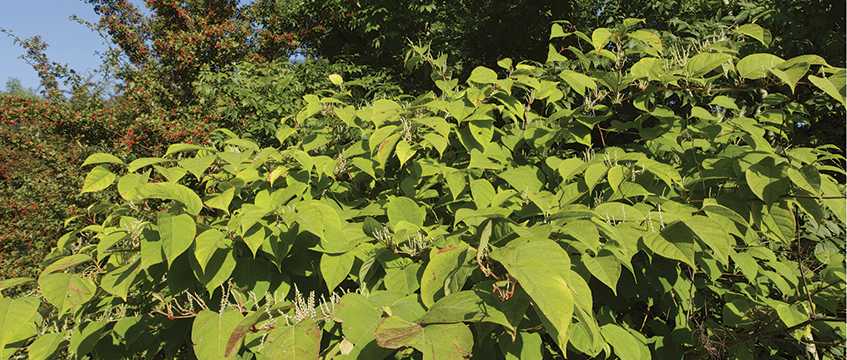Judges at the Supreme Court ruled today that a council was not liable for the encroachment of Japanese knotweed from its land onto that of a neighbour.
It is a ruling that definitively ends a thorny legal dispute that has been flip-flopping though the court system.
The case was brought by Marc Davies, the owner of a property in Bridgend, Wales, who bought the property in 2004. Bridgend County Borough Council owned land adjacent to his property where knotweed had probably been present for 50 years.
In 2012, the Royal Institution of Chartered Surveyors published a report highlighting knotweed as a problem. In 2014, the council was told about knotweed on its land but didn’t start to treat it until 2018. Meanwhile, Davies had become aware of the knotweed and sued the council, saying the plant had reduced the value of his property.
The case moved through the courts until January last year, when the Court of Appeal awarded Davis £4,900 in compensation for diminution in property value, saying the council failed in its duty as a neighbour by not treating the knotweed between 2013 and 2018, even though the weed probably encroached on the property before Davies bought it ([2023] EWCA Civ 80; [2023] PLSCS 27). Meanwhile, the now-treated knotweed rhizomes are lying dormant in the soil at the the bottom of Davies’ garden, suppressed by herbicides.
Bridgend County Borough Council appealed and the case was heard at the Supreme Court in February.
In a ruling handed down today (8 May), the five-judge panel reversed the decision of the Court of Appeal and said that Davies was not entitled to compensation.
The court found there was “no evidence” that the council’s “breach of duty between 2012 and 2018 had increased or materially contributed to the diminution in value of the claimant’s land”.
“The diminution in value would have occurred in any event so that there is no causal link between the defendant’s breach of duty and the diminution in value claimed,” Lord Justice Stephens, who wrote the main judgment, said.
While the ruling has ruled out compensation in this situation, it does not rule out compensation entirely. In fact, diminution caused after a breach of duty is likely to be recoverable, according to Nic Seal, founder of invasive plant specialist Environet and an experienced expert witness in legal cases relating to Japanese knotweed.
“This judgment does not therefore mean that all future knotweed-related claims will fail, since most cases of knotweed encroachment will have occurred more recently,” he said. “But it does highlight the critical importance of homeowners being alert to what is happening on adjoining land and putting a neighbouring landowner on notice where knotweed is at or near a boundary.”
Davies v Bridgend County Borough Council [2024] UKSC 15
Supreme Court (Lord Reed, Lord Lloyd-Jones, Lord Burrows, Lord Stephens, Lady Simler) 8 May 2024








